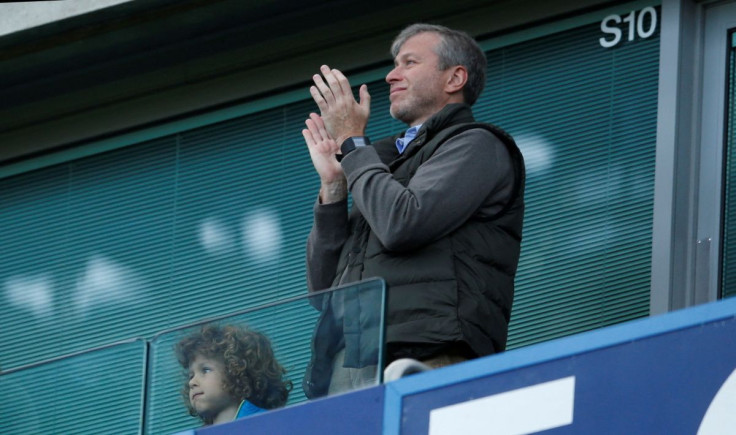Britain Ponders Law Change To Hit Russian Oligarchs With Sanctions

Britain is considering changing the law to make it easier to impose sanctions on Russian oligarchs, a government source said, amid criticism that it was taking too long to target individuals with links to President Vladimir Putin.
Since the Russian invasion of Ukraine, Britain has imposed sanctions on nine wealthy Russians but Prime Minister Boris Johnson has been accused by opposition politicians and some of his own lawmakers of failing to take more speedy action.
There have been growing calls for Russian billionaire Roman Abramovich and others to be included in sanctions, but the government has said it must have a solid legal case before taking any action against individuals.
British lawmakers have said any delay means those potentially subject to sanctions can move their wealth and assets out of Britain before they are designated.
A government source, speaking on condition of anonymity, said because of the high bar for proving the links to Putin under the current legislation it was now seeking to change the law.
The Times newspaper earlier on Thursday reported that Britain would not sanction Abramovich and other Russian oligarchs for weeks or months, if at all, because it had been unable to prove reasonable grounds for doing so.
Asked about that report, Johnson's spokesman said that the government had to make sure they had solid legal grounds before taking action, but denied that Britain was not being held back.
"We've gone further and faster than we've ever gone before," the spokesman told reporters. "Of course ... we keep under constant review whether or not we can do more to allow us to go even faster."
Asked why Abramovich and other notable Russians had not been targeted as yet, Johnson said on Wednesday he could not comment on individual cases.
Britain has so far sanctioned fewer people than the European Union which on Monday imposed sanctions on 26 prominent figures, including oligarchs and people active in the oil, banking and finance sectors.
"I don't understand why we haven't seized a single Putin oligarch yacht, palace or serious asset yet. Unlike our European neighbours," opposition Labour politician Chris Bryant said on Twitter.
France and Germany have seized two superyachts owned by wealthy Russians, according to French authorities and Forbes magazine.
REASONABLE GROUNDS
The Times said the Foreign Office and National Crime Agency had been unable to prove "reasonable grounds" for designating the most prominent oligarchs with ties to Britain because they had struggled to link their finances to the Putin regime.
Abramovich, one of the most powerful businessmen who earned fabulous fortunes after the 1991 break-up of the Soviet Union, has accepted a Ukrainian request to help negotiate an end to the Russian invasion of Ukraine, his spokeswoman said this week.
His spokeswoman declined immediate comment on the Times report.
The paper said Foreign Secretary Liz Truss wanted to sanction Abramovich but had been frustrated because of a failure by British authorities to build a case against him, amid warnings the government could be sued for millions of pounds if action was taken on a flawed legal basis.
The Foreign Office did not immediately respond to a request for comment.
The Times said the National Crime Agency (NCA) had tried in 2018 to build a case against Abramovich, the owner of English Premier League soccer club Chelsea, but failed.
A spokesman for the NCA said it was only one of the agencies involved in providing evidence or intelligence on whether someone should be sanctioned.
"If we were in a possession of material that would support sanctioning an individual we would provide it," the spokesman said.
On Wednesday, Abramovich announced he would sell Chelsea and donate money from the sale to help victims of the war in Ukraine.
© Copyright Thomson Reuters 2024. All rights reserved.





















